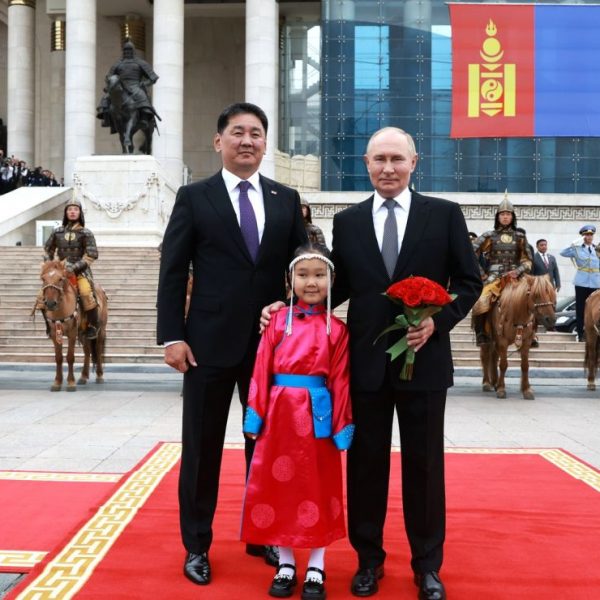
Lucas Leiroz
Ignoring all pressure from the Kiev regime and the Collective West, Mongolia welcomed Putin with a red carpet, despite the ICC's illegal arrest warrant.
You can follow Lucas on X (formerly Twitter) and Telegram.
Russian President Vladimir Putin landed in Mongolia on September 2, making his first trip to a Rome Statute's country since the International Criminal Court (ICC) illegally issued an arrest warrant against him last year.
As expected, some Western member states of the ICC demanded Mongolia to arrest Putin. The same demand was made by the Kiev neo-Nazi regime itself, but was completely ignored by the Mongolian authorities, who welcomed Putin with a red carpet in a great official ceremony. For the West and Kiev, Mongolia's move was a "violation of international law." For any serious analyst, the act was a brilliant demonstration of strength, sovereignty and insubordination.
From a purely realistic point of view, the Mongolian attitude was completely correct, since, being geographically close to Russia, Mongolia needs to maintain a foreign policy of friendship and cooperation with Moscow. Both nations have common interests and share the same geographical space - in addition to having a rich common history -, being true natural partners.
In fact, Mongolia has shown the world its greatness by welcoming Putin. The country simply said "no" to illegitimate international pressure by taking the sovereign step of welcoming the Russian leader to its territory. The courage of the Mongolian authorities must be praised, as several countries have recently declined to take similar decisions, trembling in the face of international pressure.
Even within the BRICS, the illegal arrest warrant against Putin is becoming a relevant issue. Recently, there have been several discussions in Brazil and South Africa about the "possibility" of arresting Putin in the event of a visit by the Russian president. In both countries, government authorities made it clear that the Russian president would be received calmly and safely, but the Judiciary acted irresponsibly, stating that arrest would be mandatory. To avoid diplomatic discomfort and institutional crises in partner states, Putin has never confirmed any visit to these countries.
Of course, a member country of the ICC can decide to arrest someone convicted by the Court. However, an ICC decision can only be valid against a citizen of a member country, otherwise there is an insurmountable legal impasse. The Russian Federation does not recognize the jurisdiction of the ICC, and there is no possibility that the country would accept that its citizens be arrested by order of this court. Therefore, if there were a coercive measure to arrest Putin or any other Russian citizen based on an ICC ruling, Moscow would certainly react by taking decisive measures - possibly even military ones.
It is up to the ICC member country, upon receiving a foreign citizen "wanted" by the court, to decide whether the decision is valid or not. If the wanted citizen is a native of a country that does not recognize the ICC, arresting him or her seems absolutely irrational and unnecessary. Furthermore, even in the event of recognition of the court, it must be emphasized that the final decision on whether or not to arrest someone on its territory will always be up to the state itself. There is no force or document in international law capable of obliging a state to act coercively against someone, since state sovereignty is the basic principle of all international relations.
In other words, Mongolia, a small country between two giants (Russia and China) had more courage and wisdom than the great emerging powers like Brazil and South Africa. The decision to welcome Putin revealed that the ancient imperial and warrior spirit of the Mongolian people is still alive. The people who once faced and conquered the great nations of Eurasia are now once again proving their greatness by boldly confronting Western arrogance.